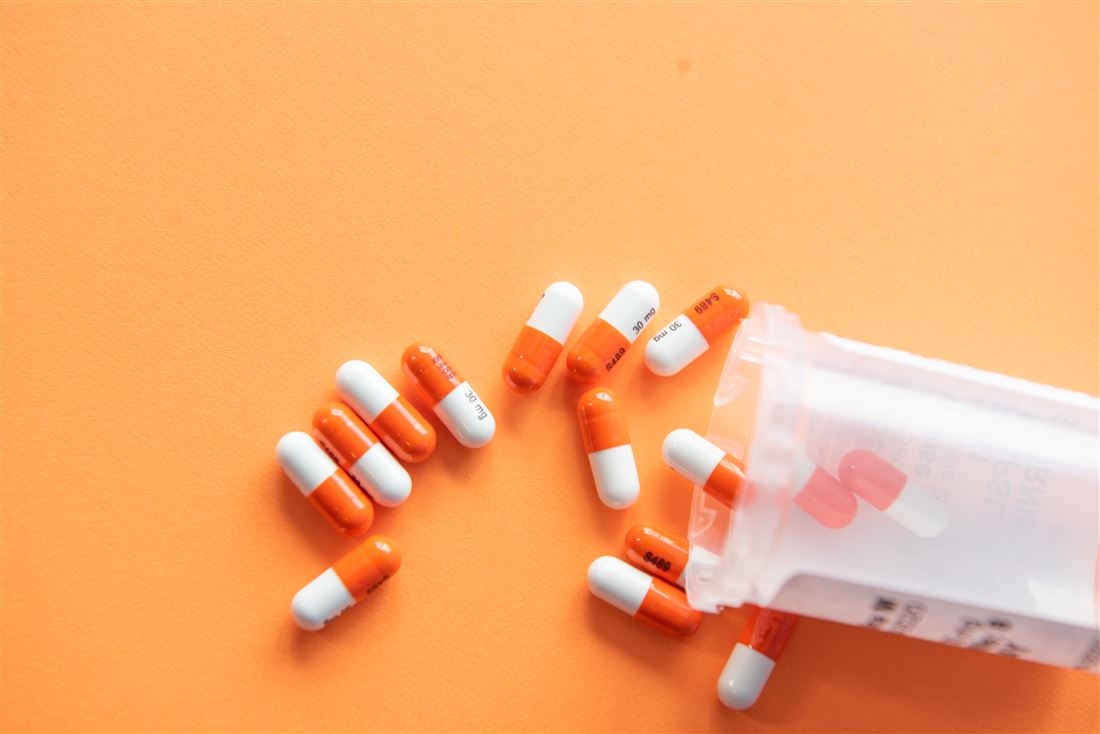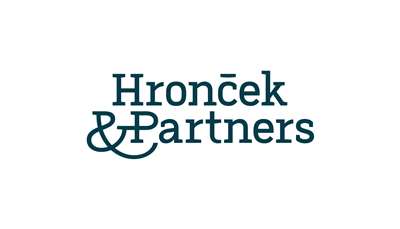
At the initiative of the Slovak Government's Legislative Agenda for 2022 (task no. 3 for October), the Minister of Health, Vladimír Lengvarský, submitted a bill amending Act No. 362/2011 Coll. on Medicinal Products and Medical Devices and on Amendments to Certain Acts, as amended, and amending certain acts, within the framework of Legislative Process LP/2022/663 (start of inter-ministerial consultation procedure on 19 October2022 and end of inter-ministerial consultation procedure on 09.11.2022). The proposed amendment to Act No. 362/2011 Coll. on Medicinal Products and Medical Devices and on Amendments to Certain Acts (hereinafter referred to as the "Medicines Act") primarily reflects European legislation, but also addresses the shortcomings of the current Slovak legal regulation of the handling of medicinal products.
Following on from the amendment in question, in this article we would like to summarise and explain in more detail the most significant proposed changes, many of which we will address separately in individual articles.
Since the Slovak Republic joined the European Union (EU), a large part of the legal regulation of the Medicinal Products Act has been harmonized by several EU regulations. As the legal framework for the handling of human and veterinary medicines and medical devices is constantly evolving and changing at the supranational level, it is necessary to implement these legal regulations into Slovak legislation.
According to the legislator, the main objective of the current October amendment to the Medicinal Products Act is therefore to address any shortcomings that have arisen from the implementation of:
- Regulation (EU) 2017/745 of the European Parliament and of the Council of 5 April 2017 on medical devices, amending Directive 2001/83/EC, Regulation (EC) No 178/2002 and Regulation (EC) No 1223/2009 and repealing Council Directives 90/385/EEC and 93/42/EEC,
- Regulation (EU) 2017/746 of the European Parliament and of the Council of 5 April 2017 on in vitro diagnostic medical devices and repealing Directive 98/79/EC and Commission Decision 2010/227/EU, and
- Regulation (EU) 2019/6 of the European Parliament and of the Council of 11 December 2018 on veterinary medicinal products and repealing Directive 2001/82/EC.
However, the current amendment to the Medicinal Products Act also introduces many other changes related to shortcomings or the need for new legislation in the Slovak Republic, which reflect the current application of the Medicinal Products Act, whether long-term or related to the latest amendment to the Medicinal Products Act.
- New competence of the Ministry of Health of the Slovak Republic
A shortcoming of the current wording of the Medicines Act is the absence of legal provisions enabling the early provision of human medicines and medical devices as essential medical countermeasures outside a declared state of emergency or extraordinary situation. For this reason, the amendment to the Medicines Act proposes to extend the powers of the state – represented by the Ministry of Health of the Slovak Republic – to enable an adequate and flexible response to ensure the supply of human medicines and medical devices. Under the new legislation, the Ministry of Health of the Slovak Republic will be authorized to procure or otherwise acquire for healthcare providers human medicines and medical devices whose storage, supply and distribution will be ensured by holders of authorizations to handle medicines and medical devices, even outside a declared state of emergency or extraordinary situation. In order to remove any doubt in the interpretation of the term "procure," an extensive interpretation is also introduced, leading to the conclusion that this also includes other forms of procurement than just provision for payment, e.g., donation of human medicines and medical devices.
- Non-commercial clinical trials
Non-commercial clinical trials are defined. The definition of non-commercial clinical trials is justified by the fact that barriers have been identified in Slovakia which mean that non-commercial clinical trials are conducted to a significantly lesser extent (approximately 3% of the volume of clinical trials) than in the developed world (15% of the volume of clinical trials).
- Additional information when notifying the procurement or sale of medicinal products
Section 18a of the Medicinal Products Act imposes an obligation on natural persons residing in the Slovak Republic and legal persons established in the Slovak Republic to notify the State Institute for Drug Control (hereinafter also referred to as "ŠÚKL") of their intention to act as an intermediary in the purchase or sale of a medicinal product for human use before commencing such activity. The amendment to the Act on Medicinal Products supplements the scope of mandatory information to be provided in the notification of the intermediation in the purchase or sale of a medicinal product for human use with a list of medicinal products for human use that are to be the subject of the intermediation. The introduction of this obligation into practice will clarify the scope and subject matter of intermediation activities and streamline administrative procedures.
- New legal regulation of the export of medicinal products for human use from the territory of the Slovak Republic
Another proposed change clarifies the conditions for the export of categorized human medicines so that the export of a human medicine included in the list of categorized medicines will be considered to have taken place when the human medicine included in the list of categorized medicines leaves the customs territory of the Slovak Republic - unlike the current legal regulation, where the export of a human medicinal product included in the list of categorized medicinal products from the Slovak Republic is considered to be the delivery of a human medicinal product included in the list of categorized medicinal products to another Member State or to a third country.
- Possibility of vaccination in pharmacies
In order to ensure easier access to vaccination for the public, the amendment to the Medicines Act introduces the possibility of vaccination as a voluntary part of pharmaceutical care in public pharmacies, branches of public pharmacies and hospital pharmacies with a department for the dispensing of medicines, medical devices and dietary foods. Vaccinations may only be administered by a professionally qualified person – a trained pharmacist or contracted doctor – in accordance with Decree No. 129/2012 of the Ministry of Health of the Slovak Republic on requirements for good pharmacy practice. Before commencing vaccination, the holder of a licence to provide pharmacy care must notify the State Institute for Drug Control and the authority that issued the licence to provide pharmacy care. The availability of public pharmacies should contribute to increasing the vaccination coverage of the population, leading to a reduction in healthcare costs. The possibility of vaccination directly in pharmacies should replace the current lengthy process, which in many cases discourages individuals from being vaccinated.
- Possibility of online dispensing via a mobile application
In view of the dynamic developments and changes in the field of information technology, the possibility of online dispensing via a mobile application is being adjusted, but only on condition that the holder of a license to provide pharmacy care in a public pharmacy ensuring online dispensing via a mobile application has met all the specific conditions for online dispensing via the website of a public pharmacy.
- Authorization of the State Institute for Drug Control to restrict the dispensing of a non-prescription drug
It is proposed that the ŠÚKL be authorized to restrict the dispensing of medicines that are not subject to a medical prescription if the human medicine may pose a risk to health that can be prevented by imposing restrictions on such dispensing. This restriction is intended to ensure the availability of medicines that can be used without medical supervision, while at the same time preventing the misuse or even illegal use of human medicines (e.g., emergency contraception, analgesics, anti-inflammatory drugs, etc.). The scope of dispensing without a medical prescription will be determined directly by the decision on the registration or change in the registration of the medicine, which will specify, for example, the quantity of the medicine, the period of use or other conditions under which the medicine may continue to be dispensed without a medical prescription.
- Prescription of medicines after discharge from institutional care
Improving patients' access to necessary medicines, medical devices or dietary foods after discharge from hospital is to be ensured by the obligation of a specialist doctor to prescribe the patient a medicinal product for human use, medical devices, including individually manufactured medical devices, and dietary foods that were indicated to the patient during hospitalization and whose administration is necessary even after discharge from institutional care, in a quantity sufficient for at least 28 days of treatment. The new regulation also stipulates that an uncertified doctor is also authorized to prescribe human medicine, medical devices, including individually manufactured medical devices, and dietary foods, with the condition that a certified institutional care doctor is responsible for the correct indication.
- Prescription of medicines by specialist doctors
Due to legislative changes implemented in the Medicines Act on 1 January 2022 in the area of prescribing human medicines, medical devices and dietary foods, the latest amendment has had a significant negative impact on the quality and availability of healthcare. The Ministry of Health of the Slovak Republic receives and deals with a large number of complaints every day from patients who have been refused a prescription for a human medicine, medical device or dietary food by their doctor. As the amendment imposed an obligation on specialist doctors to prescribe to patients all human medicines, medical devices and dietary foods that they indicated during a medical examination, in many cases patients remain in life-threatening situations without the possibility of being prescribed the necessary medicines, medical devices and dietary foods. The solution was to prescribe repeat e-prescriptions for chronic patients for up to 12 months, which proved unfeasible for the vast majority of patients registered with a specialist.
In order to ensure the availability of medicines, the amendment allows authorising doctors (specialists) to authorise the prescription of a medicinal product, medical device or dietary food to a doctor in the same or another specialisation (authorised doctor) for a maximum period of six months. The authorizing doctor is responsible for the correct indication of the human medicine, medical device, or dietetic food. The doctor is required to prescribe a human medicine, medical device, or dietetic food to the patient if they indicate that it is necessary for the patient. A general practitioner shall prescribe a prescription-only human medicine, medical device or dietary food to a patient only if authorized by a specialist.
- Prescription of medicines by nurses
The proposed legislation also responds to practical experience showing that nurses are already issuing prescriptions to patients in contravention of the legislation in force. The amendment clearly defines that the doctor is the person who prescribes treatment, but if all the important information for issuing a prescription is included in the medical records, the nurse may also issue it. By creating the record, the nurse only performs an administrative task based on the doctor's instructions and indications. The medical prescription thus remains issued by the prescribing doctor and not by the nurse.
- New powers of the ŠÚKL when carrying out inspections
The amendment introduces the authority of the ŠÚKL to inspect medicinal products also at the place where the main component of the human medicinal product safety surveillance system is located or at the place where the marketing authorization holder for a human medicinal product performs human medicinal product safety surveillance, for example at contractual partners, if the marketing authorization holder has delegated the supervision of the safety of medicinal products for human use to them, and also at intermediaries involved in the purchase or sale of medicinal products for human use.
The amendment to the Medicinal Products Act is proposed to take effect on March 1, 2023, with the exception of certain changes that should take effect on January 1, 2024, due to the need for a technical solution by the NCZI.
